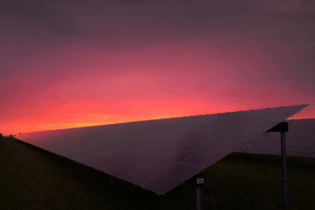 The words “nuclear energy” have been on the lips of many government officials and energy stakeholders for some time now. The prospects of South Africa developing new nuclear power stations remain positive considering the amount of effort the government has invested its nuclear build programme, and while many opponents argue that South Africa cannot afford nuclear energy, the more concerning question remains: where to store nuclear waste?
The words “nuclear energy” have been on the lips of many government officials and energy stakeholders for some time now. The prospects of South Africa developing new nuclear power stations remain positive considering the amount of effort the government has invested its nuclear build programme, and while many opponents argue that South Africa cannot afford nuclear energy, the more concerning question remains: where to store nuclear waste?
Where and how SA’s nuclear waste is currently stored
South Africa currently has one nuclear power station, Koeberg, which is situated in the Western Cape, and Pelindaba in Gauteng is the country’s main nuclear research centre. Waste from these stations is ether stored on site or at the Vaalputs nuclear waste site in the Northern Cape. Vaalputs, which is managed by the South African Nuclear Energy Corporation (NECSA), only stores low and medium-level nuclear waste. The waste is transported to the site by truck and is stored in metal and concrete drums. In previous interviews, group executive for corporate services at NECSA, Xolisa Mabhongo, said that used fuel from future proposed nuclear builds will be stored in pools at the nuclear power plants during plant operation and will eventually be transferred to a dry storage facility away from the nuclear power plant. “Finally, it will be disposed of in a deep geological repository if there is no need for it to be reprocessed and recycled,” he said. Mabhongo also said that the Vaalputs’s disposal capacity could easily be increased to “more than 10 times the current capacity, which will be more than adequate to accommodate an increase in nuclear waste associated with additional nuclear power plants”.Disposing of different types of nuclear waste
There are six different types of nuclear waste which have been identified by the International Atomic Agency. Each type poses different threats to human health and should be disposed of using different methods.- Exempt waste: This can be disposed of like normal household waste
- Very low-level waste: This type of waste has low radioactivity levels and is disposed of in landfills
- Low-level waste: This type of waste is disposed of in metal or concrete containers as it can last a few hundred years
- Long life nuclear fission products: This type of waste remains radioactive for up to 220 000 years
Opponents say SA can’t afford nuclear energy
While SA remains in desperate need of more power, the ever tightening noose around the country’s budget have many, who are opposed to the nuclear programme, saying that the country cannot afford nuclear energy in the mix. The developments of government’s proposed nuclear power stations are estimated to cost the country more than a trillion rand. As part of the government’s plans to add 9,600MW of energy to the national grid, Energy Minister Tina Joemat-Pettersson, suggested earlier this month that Eskom fund the construction of the new nuclear power stations, taking the pressure of Treasury to do so.Eskom has weighed in on the situation, saying that although the construction of several new nuclear power stations would be costly for SA, running expenses would cost less if alternative energy sources contributed to the national grid.
The power utility also said that based on past experiences, the country was well-equipped to host nuclear power stations as it had a ‘nuclear safety culture’. Eskom cited Koeberg’s successful operation of 32 years as an example that nuclear power was safe for SA. Advantages and disadvantages of nuclear power Some of the advantages include:- Nuclear power is considered more carbon neutral, compared to crude oil, coal, natural gas, or heavy oils
- Nuclear power produces less greenhouse gas emissions
- Nuclear waste is radioactive for thousands of year
- The hazard of radioactive waste being emitted into the atmosphere. This can have harmful health effects for thousands of years
- Possible nuclear reactor accidents
- Nuclear fuels are non-renewable energy resources







